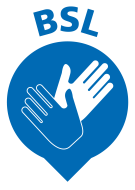Health advisor at North East Ambulance Services reminds public how important bystander CPR is.
Cardiac arrest can strike anybody at any time in any place, and every minute without CPR and defibrillation reduces the chance of survival by 10%.
Earlier this month, health advisor, Bethany Hackers took a 999 call for a cardiac arrest at a supermarket in Northumberland. During the call, a student paramedic from University of Sunderland performed bystander CPR to the patient.
Health advisor at the North East Ambulance Service, Bethany Hackers, said “When taking a 999 call, I ask the caller if the patient is breathing abnormally because this can mean the patient might be going into cardiac arrest. In this instance, the student paramedic recognised the signs of cardiac arrest and needed little to no help with the basic life support advice, but I gave words of encouragement throughout the call.
“In these types of calls, it is always nerve-racking because someone’s life is immediately in danger. However, I did feel relieved that the student paramedic was there, and she very quickly put the intervention in place.
“On average, we support around 16,000 callers to give CPR over the phone each year.”
Alex Mason, community development officer said: “For an ambulance crew attending a cardiac arrest, knowing there’s someone there who is able to support the patient while the crew are travelling is a great reassurance. It’s heartening for them to know the community are doing their bit in the chain of survival.
“We have invested in the community offering partial funding in some areas to increase the number of public access defibrillators as well as providing training so that we can help increase the chance of people surviving.”
Over 30,000 people suffer a cardiac arrest out of hospital in the UK every year, with less than one in 10 people surviving. The number of cardiac arrests is around 2,100 for the North East, with just one person in 16 surviving.

